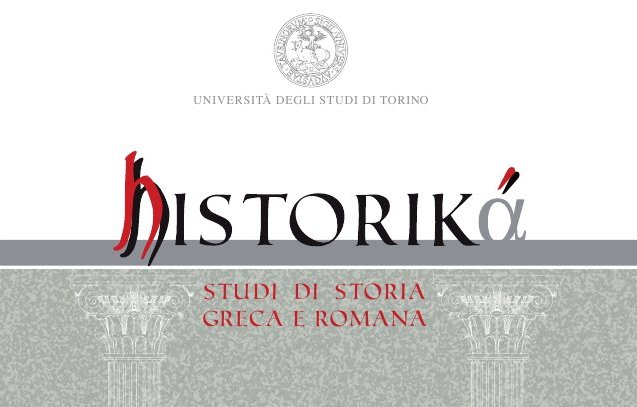«Μέγα τὸ τῆς θαλάσσης κράτος» (Θουκ. Ι 143, 5): αρχαιολογία της ιδέας
DOI:
https://doi.org/10.13135/2039-4985/1927Abstract
This is a philological study that deals with the articulated ideas and it is not in the least concerned with the historicity of events; it is not the events but the ideas that I thought are worth writing about (cf. I 22, 2). ‘Archaeology’, the title of this paper, refers – with a certain degree of ambiguity – first to the Archaeology of Thucydides, next it includes the connotation of Archaeology as excavation of the idea in Thucydides and Old-Oligarch, the sea-power of Polycrates in Herodotus, the Catalogue of the Ships in the second Book of the Iliad and the third chorus of the Persians of Aeschylus (852-907). In addition, the notion of ‘archaeology’ involves the components of the idea in Hesiod and Homer, and its survival in Xenophon’s Hellenica and in Isocrates, and, finally, its philosophical foundation in works of Plato and Aristotle; the study of the notion of Archaeology culminates with Atlantis and the works Timaeus and Critias of Plato.##submission.downloads##
Pubblicato
2016-11-30
Fascicolo
Sezione
Sezione tematica
Licenza
Gli autori che pubblicano su questa rivista accettano le seguenti condizioni:
- Gli autori mantengono i diritti sulla loro opera e cedono alla rivista il diritto di prima pubblicazione dell'opera, contemporaneamente licenziata sotto una Licenza Creative Commons - Attribuzione che permette ad altri di condividere l'opera indicando la paternità intellettuale e la prima pubblicazione su questa rivista.
- Gli autori possono aderire ad altri accordi di licenza non esclusiva per la distribuzione della versione dell'opera pubblicata (es. depositarla in un archivio istituzionale o pubblicarla in una monografia), a patto di indicare che la prima pubblicazione è avvenuta su questa rivista.


 The journal has been approved for inclusion in DOAJ. The DOAJ listing of the journal is available at
The journal has been approved for inclusion in DOAJ. The DOAJ listing of the journal is available at 

